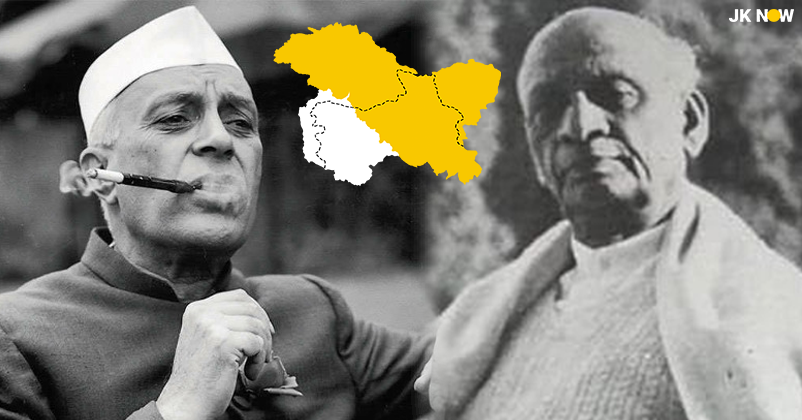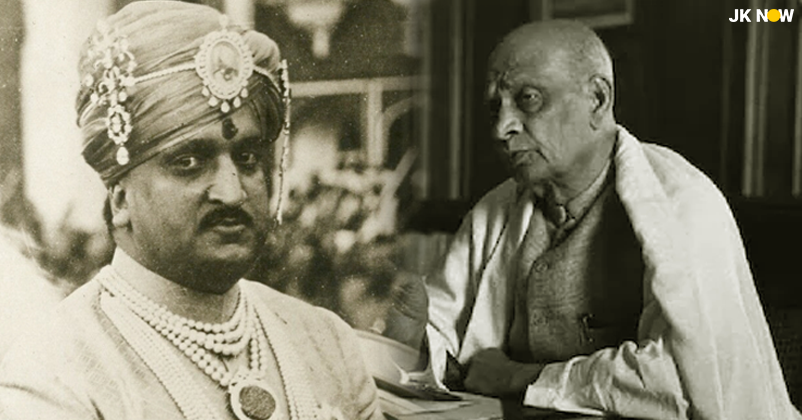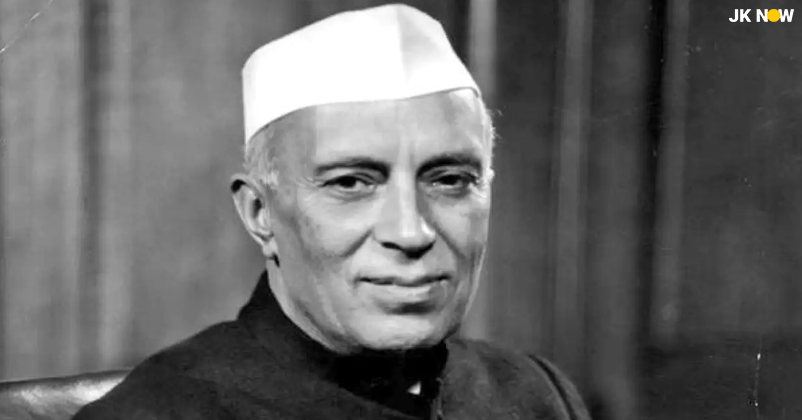1947 - With Nehru, Jammu and Kashmir’s accession to India was in jeapordy but Sardar Patel made it possible
01-Nov-2022

For Sardar Patel, it is said that he didn’t want J&K’s accession to India. However, as per the documents , he was the first person who took initiative to accede J&K to India. Not only this, he made every possible effort to make the accession more strong. Patel on July 3, 1947 wrote a letter to Maharaja Hari Singh and expressed himself as a loyal friend and a well- wisher of the state. With this, he assured the King that Kashmir’s best interest, without any further delay is only in joining the Union of India and it’s constituent assembly.
Patel was constantly in touch with the state to establish relations with it. Before accession, on October 2, 1947, Patel in a letter wrote to Maharaja that " to connect J&K with the Union of India through various other channels such as telephone, telegraph, wireless and roads, i have been working tirelessly “. Patel from his cabinet associates K.C Niyogi, Rafi Ahmad Kidwai and Baldev Singh demanded to ensure proper food supply and transportation for the state.
On one hand, within few months, Patel and Maharaja had developed cordial relations and on the other hand, accession was getting delayed and under a well knit conspiracy , Maharaja was falsely accused of seeking other options. Infact, Sheikh Abdullah was solely responsible for this misunderstanding. In 1946, for spreading violence and riots , Maharaja had got him arrested and events that followed became so souring that Jawahar Lal Nehru made up his mind to teach Maharaja a lesson . From that moment , an unseen distance got created between Maharaja and the Congress leaders which delayed the accession procedure.

Patel was well aware of the mistakes made by the Congress leaders. He believed that none amongst them could understand Maharaja’s side. He believed that the misunderstandings between them should have been sorted out individually. In a letter addressed to Maharaja , Patel said he received wrong informations about the state. Patel was first person who broke this arrangement and the conditions gradually started to improve. Even Maharaja was also positive about Patel because he only trusted Patel of the whole Congress party. However, for Maharaja it was said that he didn’t trust people easily but his respect for Patel had become permanent and strong.
Meanwhile, Pakistan attacked Jammu and Kashmir and Maharaja Hari Singh signed the instrument of accession with India. As per the laid down rules, Sardar Patel’s ministry had to make further decisions for J&K but that wasn’t allowed to happen. To give it more clarity, Hari Vishnu Kamath elaborated it in a book dedicated to Patel. Patel and Kamath would often talk about J&K and once Patel very heavy heartedly told him that Nehru and Iyengar have kicked his Home and State ministers out of the ambit of Kashmir and have restricted it only to them. Kamath further wrote if that wouldn’t have happened than Patel could have handled the issues in a much better way. After Patel, Nehru , Iyengar and Sheikh Abdullah unitedly got Maharaja out of the state.
However, Nehru and his associates were being criticised with in the Congress party for their policies. N.D. Gadgill in his book `Government from Inside’ writes that he always told Nehru to make strong decisions on Kashmir and even put forth a proposal to give him support on that. But Nehru used to say that politics should always be flexible and in reply to that , Gadgill says, "if you don’t take strong steps , than you won’t get time even to accept your mistakes “. Gadgill’s remark over Prime Minister Nehru’s short sightedness tuned out to be right. After Nehru’s death, issues of state deteriorated further resulting in terrorism and separatism spreaded in the state and citizens paid the price of that.

Even after PM Nehru’s one sided decisions on state’s policies, Patel’s endearment for the state never lessened. After Pakistan’s attack, every day it was costing nearly four lakh rupees for state security. Patel himself made this information public during a library inauguration in Delhi. That same day, Patel made it clear that this won’t stop in Jammu and Kashmir and we won’t fall back even an inch. He repeated this on 3 January, 1948 in Kolkata.
Pakistani attack on J&K had hurt Patel to the core. He was continuously receiving letters regarding robberies, killings , genocides in the state. As per New York Times, the Pakistani attackers had killed more than 3000 persons in mere three days in Baramulla which besides men and children include pregnant ladies too. Only Hindus and Sikhs were being selectively targeted in these attacks. On a radio broadcast from Delhi, Patel called this violence inhuman.
Patel was doing his best in order to stop this violence, he even toured the state with the defence minister Baldev Singh. He made sure that security forces and local police getting proper arms and equipments to deal with the attackers. He even provided weaponry to the villagers of far flung areas. Besides that, this attack had another perspective too. Other national Muslim leaders attitude on Hindu genocide in the state was irritating Patel. He exhibited this resentment on 6 January, 1948 in Lucknow. This turned out to be one of his most famous speeches in which for the first time he talked openly about Pakistan, The Muslim League and Indian Muslims.
Actually, National Muslim leaders didn’t react much or condemned the genocide of Hindus in J&K and Punjab. Days before Patel’s speech, a meeting of All India Muslim Conference was called and Patel was expecting a discussion over Hindu killings in that meeting. When nothing such happened then in Lucknow , he clearly stated that Muslims who are not loyal to India will have to go from here. Muslim leaders complained of this to Mahatma Gandhi. Patel in Bombay while putting forth his side said that, " I am not a weak man which has to be defended by another”.
All above mentioned incidents clearly indicate that from division of India to his death in 1950, Patel had his full concentration only in keeping India’s unity and J&K was a prominent part of it . Patel had accurate thinking for the better future of this state. He used his conscience to take decisions. Whatever he ever said or did, always had a clear motive. Patel’s this thinking made him the Iron Man of India.